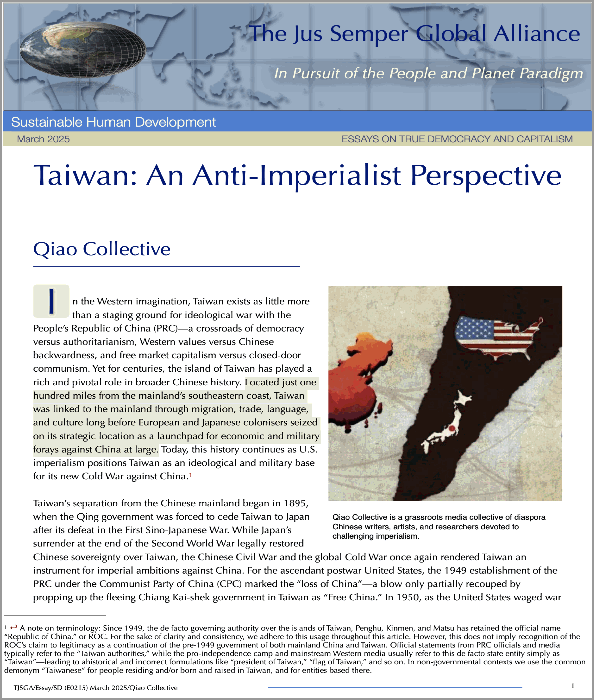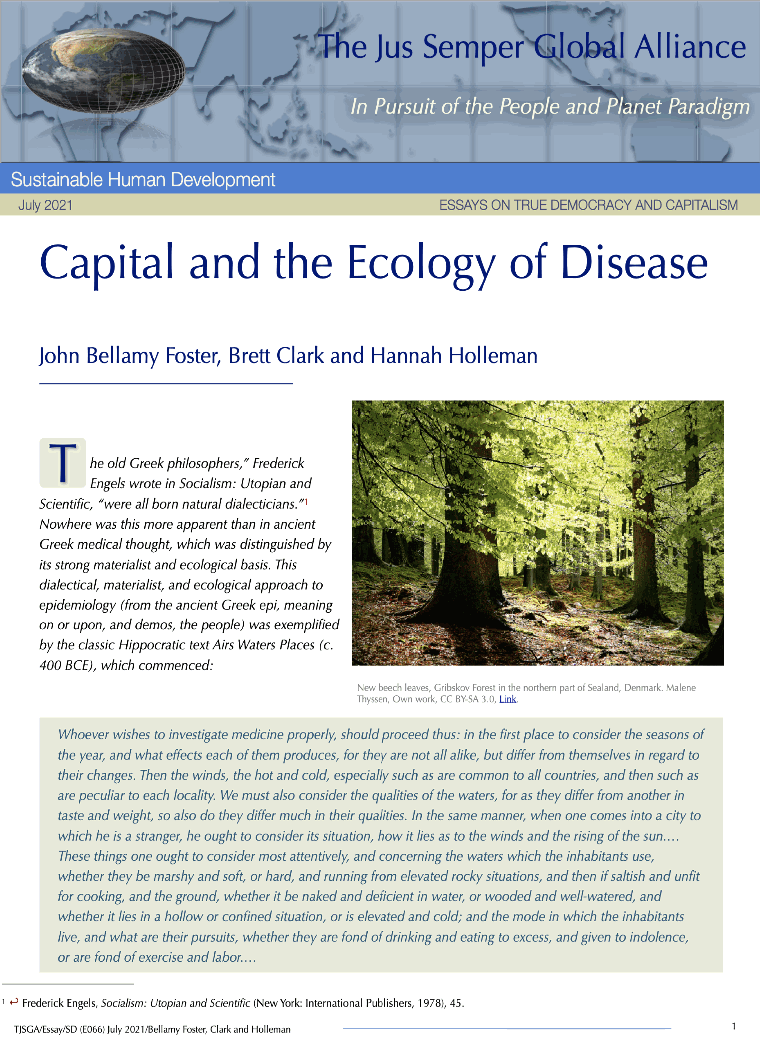John Bellamy Foster, Brett Clark and Hannah Holleman "Whoever wishes to investigate medicine properly, should proceed thus: in the first place to consider the seasons of the year, and what effects each of them produces, for they are not all alike, but differ from themselves in regard to their changes. Then the winds, the hot and cold, especially such as are common to all countries, and then such as are peculiar to each locality. We must also consider the qualities of the waters, for as they differ from another in taste and weight, so also do they differ much in their qualities. In the same manner, when one comes into a city to which he is a stranger, he ought to consider its situation, how it lies as to the winds and the rising of the sun.… These things one ought to consider most attentively, and concerning the waters which the inhabitants use, whether they be marshy and soft, or hard, and running from elevated rocky situations, and then if saltish and unfit for cooking, and the ground, whether it be naked and deficient in water, or wooded and well-watered, and whether it lies in a hollow or confined situation, or is elevated and cold; and the mode in which the inhabitants live, and what are their pursuits, whether they are fond of drinking and eating to excess, and given to indolence, or are fond of exercise and labor.… " "For if one knows all these things well, or at least the greater part of them, he cannot miss knowing, when he comes into a strange city, either the diseases peculiar to the place, or the particular nature of common diseases, so that he will not be in doubt as to the treatment of the diseases, or commit mistakes, as is likely to be the case provided one has not previously considered these matters. And in particular, as the season and the year advances, he can tell what epidemic diseases will attack the city, either in summer or in winter, and what each individual will be in danger of experiencing from the change in regimen.… For with the seasons the digestive organs of men undergo a change." A key element of this view was the notion of a dialectical relation between the body and the environment, such that the body was situated or embodied in a particular place and specific natural conditions (air and water), producing a vision, as historian of medicine Charles E. Rosenberg has indicated, that was “holistic and integrative—one might call it both ecological and sociological.” To be sure, in ancient Greece, medicine was bifurcated. Slaves had slave doctors and citizens had citizen doctors, who performed under quite different conditions. The Hippocratic author of Airs Waters Places was writing specifically for citizen doctors, and thus this treatise reflected the class nature of Greek society. Nevertheless, it stood for a general approach that was to influence the later development of epidemiology for thousands of years. The marginalisation by the mid–twentieth century of social-environmental approaches to epidemiology was justified by the triumph of modern medicine over infectious diseases. It was argued that infectious diseases were essentially phenomena of the past in developed economies, swept away by the modernisation process. While infectious diseases were still present in underdeveloped economies, it was proposed that health concerns should focus on the concomitant rise of degenerative diseases. This approach began to crumble. “Is Capitalism a Disease?,” the appearance at the end of the twentieth century of a new series of pathogens, including the return of malaria, cholera,dengue fever, tuberculosis, and other classic diseases, coupled with Ebola, AIDS (HIV), and multiple drug resistant tuberculosis—to which we could now add others such as H1N1, H5N1, MERS, SARS, and COVID-19 (SARS-CoV-2)—pointed to the complete failure of the epidemiological transition theory.
For a full read of this brief, click here or on the picture to download the pdf file.
|

- © The Jus Semper Global Alliance
| Home |  | Resources |  | Economic Data |  | Capital and the Ecology of Disease |


